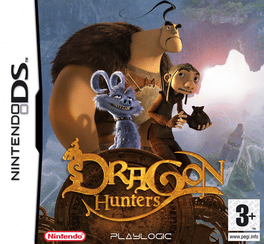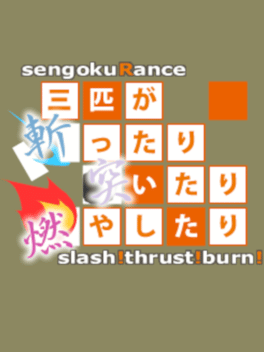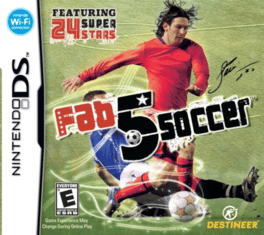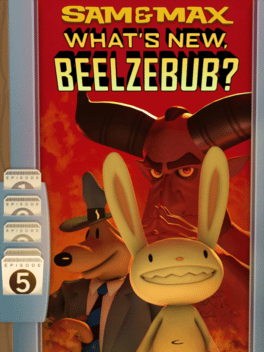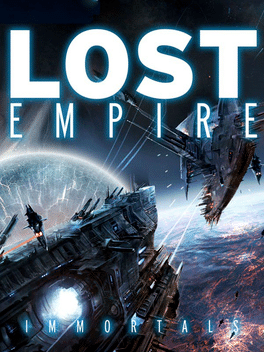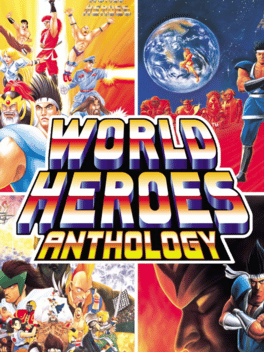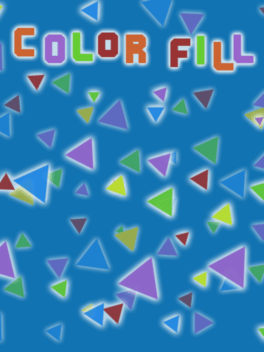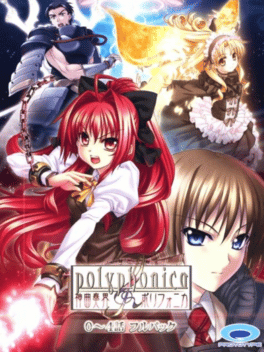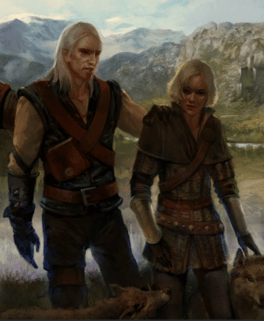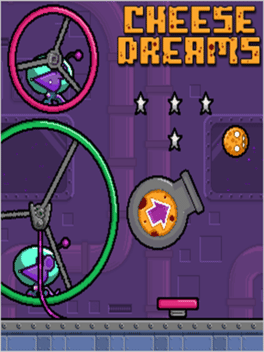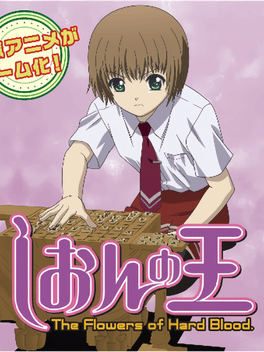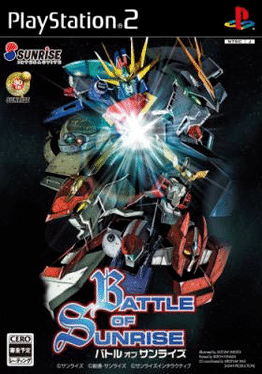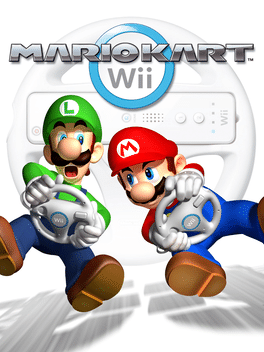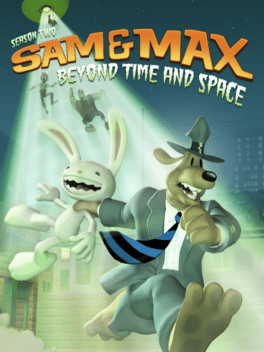New Games - Page 9984
-
Dragon Hunters
2008
Dragon Hunters
2008
Dragon Hunters is a fun platform action game, based on the stunning world featured in the successful Dragon Hunters TV series and the animated movie coming spring 2008. Dragon Hunters combines platform gameplay with many challenging puzzle and action elements. Use the 3 characters of the game according to their individual abilities, and make your way through a detailed fantasy world consisting of landmasses and planetoids floating mid-air. -
Sengoku Rance: Sanbiki ga Kittari Tsuitari Moyashitari - Slash! Thrust! Burn!
2008
Suzume's past comes back to haunt Kanami as a Silver Eye Sect ninja named Kakusui steals Kanami's Decapitation Blade and plans to get revenge on Suzume and Inukai over the death of her leader, Gumo Danjou by using its abilities to become stronger than Suzume. The chase is on, as Kanami, Suzume and Senhime work together in order to get Kanami back her Decapitation Blade. -
Word War Vi
2008
Word War Vi
2008
Word War vi is your basic side-scrolling shoot 'em up '80s style arcade game. You pilot your "vi"per craft through core memory, rescuing lost .swp files, avoiding OS defenses, and wiping out those memory hogging emacs processes. When all the lost .swp files are rescued, head for the socket which will take you to the next node in the cluster. -
Sainth
2008
Sainth
2008
Years after the events of "Wraith", a young girl named Lily, has a chance encounter with someone familiar. Following that, she soon finds herself stranded in a strange place with nary a soul in sight. As she struggles to gain her bearings, a voice echoes inside her head. It is the World Tree, telling her to seek out her memories from long ago... Sainth is a free RPG Maker game developed by Neo Kuriyo. It is the sequel to Wraith. -
Fab 5 Soccer
2008
Fab 5 Soccer
2008
Create your Dream Team, The Superstars of the soccer world don't stop playing when they step outside the arena. Join 24 of the world's most famous players in frenzied, fast-paced, arcade-style 5-on-5 soccer matches. No time outs, few penalties, just frantic soccer play! The best players in the world playing soccer the way Join 24 of the world's most famous players in Fab 5 Soccer for Nintendo DS. Create your Dream Team with the Superstars of the soccer world. They don't stop playing when they step outside the arena. Get in on the action with frenzied, fast-paced, arcade-style 5-on-5 soccer matches. No time outs, few penalties, just frantic soccer play. Play the best players in the world the way you play with your friends. Build your team with all-star athletes like Lionel Messi, Luis Figo, Cesc Fabregas, Dejan Stankovic, Jose Reyes, Juan Veron, Dida Silva and more. Win matches to unlock training minutes and build your team's skills in the Training Gym. Spend minutes to teach your players special moves and boost th -
Ski-Doo X-Team Racing
2008
Get ready for high intensity extreme sports action in this multiplayer snowmobile racing game. Feel the rush as you wait for the green flag to drop on your snocross race. Your track hooks-up, rocketing you to the holeshot, and it now will take all your skill to tame the course and guts to execute stunts on huge fly-away jumps. For a totally different experience, enjoy the freedom of exploring the backcountry with no boundaries. Or show your style doing tricks on the radical new Freestyle sled. -
Sam & Max: Beyond Time and Space - Episode 5: What's New Beelzebub?
2008
star 7.2Judgment day is at hand, and it's time for a showdown with the guy downstairs to bargain for Bosco's soul. But in the corporate wasteland known as Hell, not even the Freelance Police are safe from eternal damnation. Can Sam & Max fight free from Satan's grasp, or have they reached the end of the line? -
Lost Empire: Immortals
2008
star 7Lost Empire: Immortals is a 4x turn-based strategy game, featuring multiple star maps with up to 5000 star systems, 6 different races and an extensive research tree. The battles are rendered in 3D - although the player cannot control them - and the final objectives can be domination, diplomacy, research or exploration. -
World Heroes Anthology
2008
star 5.5World Heroes Anthology is the complete collection (on one disc) of one of SNK's most popular 2D fighting game series World Heroes. The titles included are: World Heroes, World Heroes 2, World Heroes Jet, and World Heroes Perfect. The collection contains 56 characters using hand-to-hand and weapons based fighting mixed with special super-human abilities enabling each character to perform special attacks. World Heroes Anthology follows the storyline of Dr. Brown, a scientist, who having perfected a time machine has organized a fighting tournament throughout all of history to see who is the best fighter of all time. True to this plot, many of the fighters are based on actual historical figures. -
Insecticide
2008
Insecticide
2008
star 5.5Enter the fast shooting world of Insecticide as hot shot rookie Detective Chrys Liszt and help solve a crime of epic proportions. Lead your team on a bug hunt, collecting clues and solving puzzles. Use old-fashioned street smarts, unique insect abilities and an arsenal of ingenious bug weapons to confront your suspects. Explore a futuristic world of mutant insects and uncover the truth in a city infested with corruption. It won’t be easy solving this mystery, but some buggy’s got to do it! -
Colorfill
2008
Colorfill
2008
Fill 80% of the stage with colors while avoiding collisions with enemies in this happy arcade flash game! -
The Witcher: The Price of Neutrality
2008
The Price of Neutrality is a premium module for The Witcher, created by CD PROJEKT RED and released on April 10, 2008, together with the D'jinni Adventure Editor. The original adventure required Patch 1.3 to work, but had no voice acting. The next patch, version 1.4 or The Witcher: Enhanced Edition, added Side Effects premium module, and voice acting for both modules. While the plot itself is new, the locations were originally meant to be included in the main game, but were cut from the final version. -
Cheese Dreams
2008
-
Battle of Sunrise
2008
Battle of Sunrise
2008
Battle of Sunrise is a Strategy game, developed and published by Sunrise Interactive, which was released in Japan in 2008. -
Sledgehammer
2008
Sledgehammer
2008
star 5The player takes over the role of Jack Hammer or more specifically his truck either in a 3rd-person- or cockpit-view. The truck has the ability to transform itself into to two configurations: combat mode and race mode. In race mode the truck has access to it's boosters, allowing it to speed up fast. Once the player has installed the upgrade, he can also plant mines in race mode. Combat mode instead activates the three weapons systems: main, secondary and melee. By successfully completing the missions and also by earning gold medals, the player unlocks additional upgrades for his truck. These can either enhance his performance like better boosters, change his look or are improvements like a rocket launcher or circular saws on the side for his combat mode. The game is divided into six episodes with several missions that either advance the storyline or are just there to unlock new upgrades. The missions themselves are roughly divided into twelve game modes although especially the final missions of each episode often -
Ultimate Shooting Collection
2008
Ultimate Shooting Collection is a compilation of Karous, Radio Allergy, and Chaos Field. This is also first time English versions of Karous and Radio Allergy are released. -
Mario Kart Wii
2008
Mario Kart Wii
2008
star 7.5Mario Kart Wii is a multiplayer-oriented racing game for the Wii, and the sixth main installment in the Mario Kart series. Mario Kart Wii retains the traditional item-based weaponry familiar with the franchise, where players can select a Mario franchise driver and themed vehicles. As with most racing games, the overarching goal is to place first among other competitors, through the usage of such items and taking the fastest routes to secure the leads. Several new key elements introduced to Mario Kart Wii include increasing the number of racers to 12 racers from 8 racers from previous entries in the series, as well as introducing a new type of vehicle to the franchise: bikes. The game takes advantage of features unique to the Wii, most notably its motion control capabilities. A Wii Wheel is included in most Mario Kart Wii packages, though the game is still compatible with other controllers. Game modes are also present such as the traditional Grand Prix, Versus, Battle, and Time Trial modes. -
Sam & Max: Beyond Time and Space
2008
star 7.5Join the Freelance Police for a second season of adventure, crime fighting, and chaos. Sam & Max Beyond Time and Space starts with a giant robot attack and never lets up, taking our valiant crime fighters on a gut-wrenching mission from the North Pole to Easter Island, from outer space to Hell and back. Babies will dance. Mariachis will sing. A giant battle robot will trash the streets. And when their friends are caught in the middle, Sam & Max risk their very souls to set things right.

